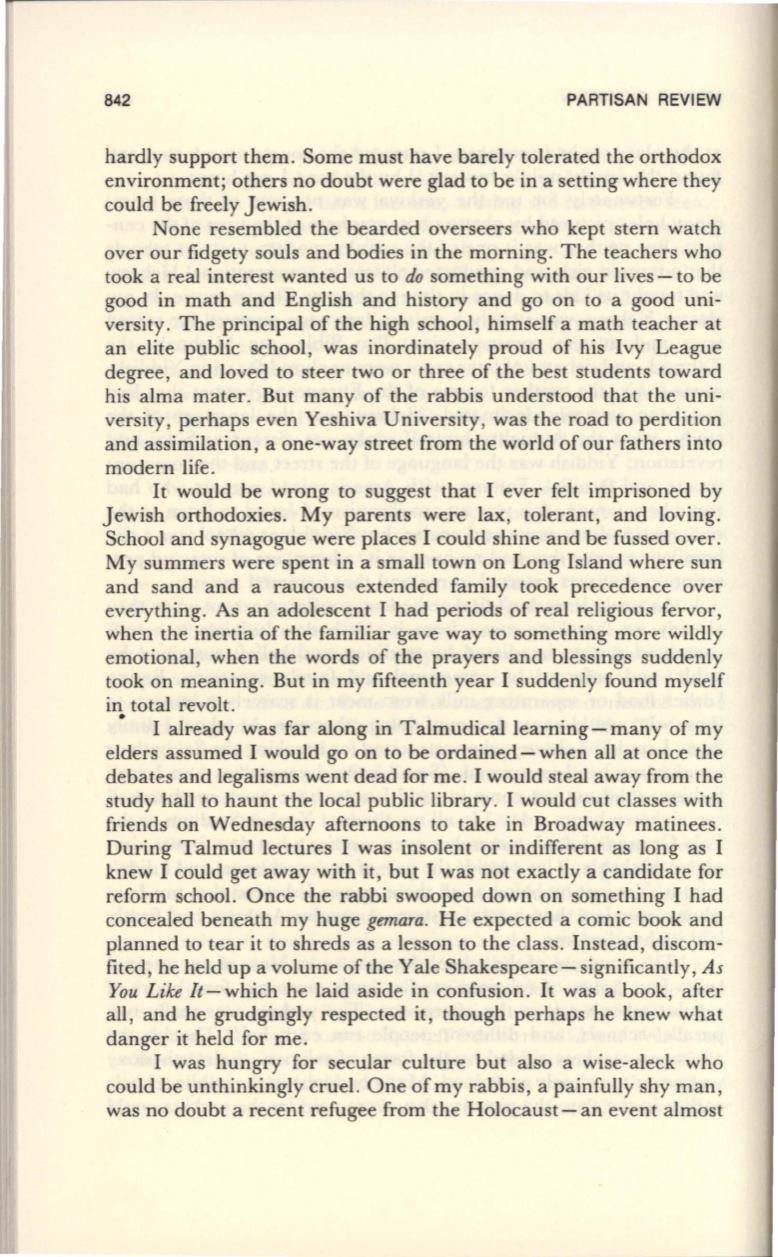
842
PARTISAN REVIEW
hardly support them. Some must have barely tolerated the orthodox
environment; others no doubt were glad to be in a setting where they
could be freely Jewish.
None resembled the bearded overseers who kept stern watch
over our fidgety souls and bodies in the morning. The teachers who
took a real interest wanted us to
do
something with our lives- to be
good in math and English and history and go on to a good uni–
versity. The principal of the high school, himself a math teacher at
an elite public school, was inordinately proud of his Ivy League
degree, and loved to steer two or three of the best students toward
his alma mater. But many of the rabbis understood that the uni–
versity, perhaps even Yeshiva University, was the road to perdition
and assimilation, a one-way street from the world of our fathers into
modern life.
It would be wrong to suggest that I ever felt imprisoned by
Jewish orthodoxies. My parents were lax, tolerant, and loving.
School and synagogue were places I could shine and be fussed over.
My summers were spent in a small town on Long Island where sun
and sand and a raucous extended family took precedence over
everything. As an adolescent I had periods of real religious fervor,
when the inertia of the familiar gave way to something more wildly
emotional, when the words of the prayers and blessings suddenly
took on meaning. But in my fifteenth year I suddenly found myself
in total revolt.
• I already was far along in Talmudical learning- many of my
elders assumed I would go on to be ordained- when all at once the
debates and legalisms went dead for me. I would steal away from the
study hall to haunt the local public library. I would cut classes with
friends on Wednesday afternoons to take in Broadway matinees.
During Talmud lectures I was insolent or indifferent as long as I
knew I could get away with it, but I was not exactly a candidate for
reform school. Once the rabbi swooped down on something I had
concealed beneath my huge
gemara.
He expected a comic book and
planned to tear it to shreds as a lesson to the class. Instead, discom–
fited, he held up a volume of the Yale Shakespeare- significantly,
As
You Like
It-which he laid aside in confusion .
It
was a book, after
all, and he grudgingly respected it, though perhaps he knew what
danger it held for me.
I was hungry for secular culture but also a wise-aleck who
could be unthinkingly cruel. One of my rabbis, a painfully shy man ,
was no doubt a recent refugee from the Holocaust- an event almost


